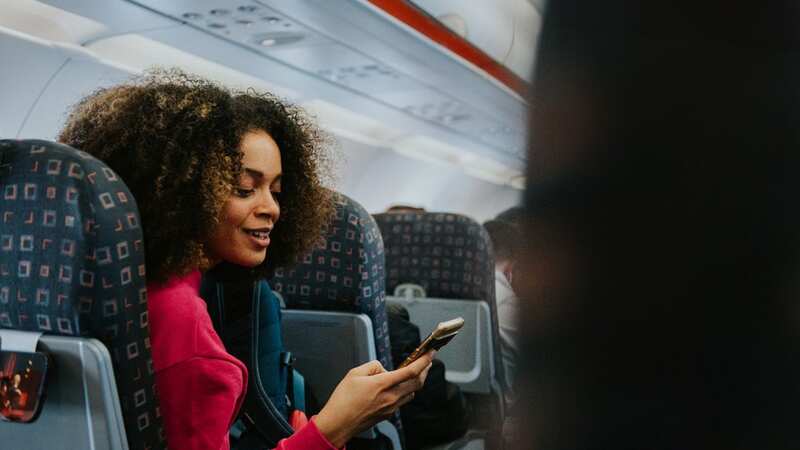Real reason you can't use phone on plane - and what happens if you forget

It's the message announced over the Tannoy on every flight, asking passengers to make sure they switch their mobile phones onto airplane mode. But do you know why? And what happens if you forget?
We have long been told that mobile phones emit radio waves that could interfere with the normal operation of aircraft equipment and also cause interference in pilot's headsets.
Even though mobiles are well out of range when they're mid-flight, they continue to send out electrical signals in search of a connection. Switching to flight mode simply means all cellular signals are disabled.
Dai Whittingham, chief executive of the UK Flight Safety Committee, previously told the BBC that airplane mode was historically important due to a lack of knowledge about how mobile devices affect aircraft.
"There was a concern they could interfere with automatic flight control systems," he said. "What has been found with experience is the risk of interference is very small. The recommendation has always been that once you are in flight, devices should be in airplane mode."
 Red Arrow pilot forced to send out emergency alert after bird smashes into jet
Red Arrow pilot forced to send out emergency alert after bird smashes into jet
Thankfully, you're not going to cause any real danger if your device is left on normal mode. If everyone on a flight forgot to activate flight mode, there would be a level of interference, but the plane would certainly not malfunction, nor fall from the sky according to Tamara Vallois, head of communications at Wizz Air.
Meanwhile, it was announced in December 2022 that plane passengers would soon be able to make calls and surf the internet when flying thousands of feet above the ground. From 2023, airlines operating within the European Union can provide 5G to their passengers. The move follows an announcement by the EU that airlines can use special network equipment called Picocell, which employs satellites to connect phones to the ground.
"5G will enable innovative services for people and growth opportunities for European companies," said Thierry Breton, EU Commissioner for the Internal Market. The frequencies for in-flight 5G (5 GHz) are different from those necessary for flying a plane (4.2 to 4.4 GHz), meaning there is essentially no risk of the pilot's transmissions being interrupted.
And while it may sound like the future - and probably is - having limitless 5G in the air may come with a downside. In recent years, the sound of a fellow passenger loudly chatting away, sometimes on speaker phone, has come to plague many a train carriage and bus. But the biggest limit on this disruption is likely to be how much data will cost. Airlines are likely to charge for the service which may incur international roaming charges as the plane travels across borders.
Read more similar news:
Comments:
comments powered by Disqus

































